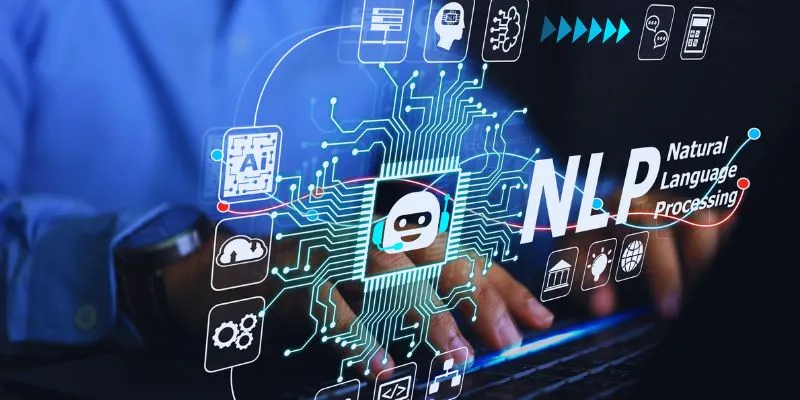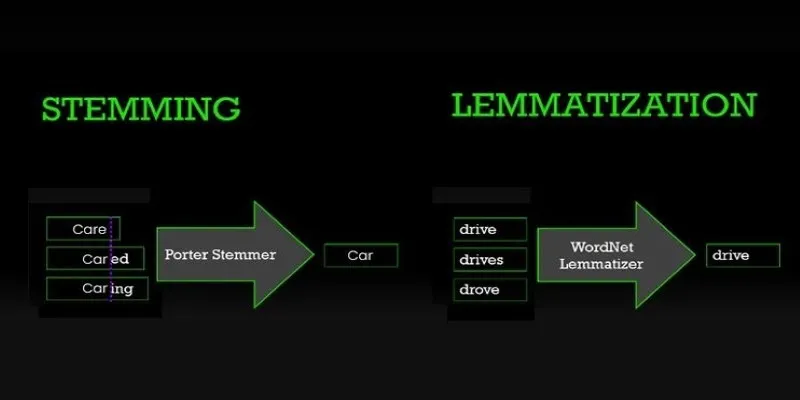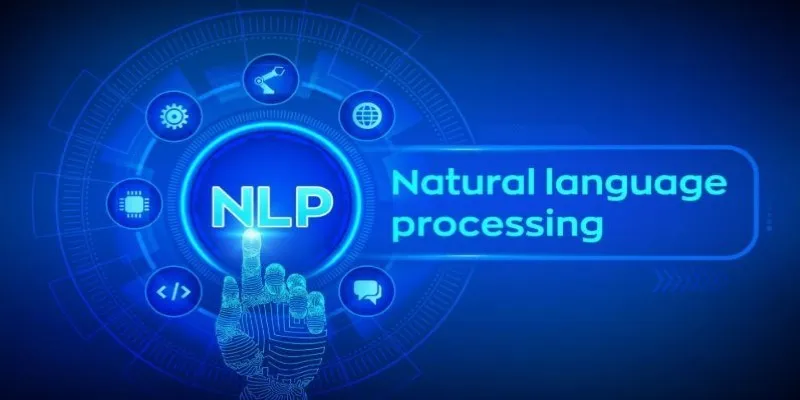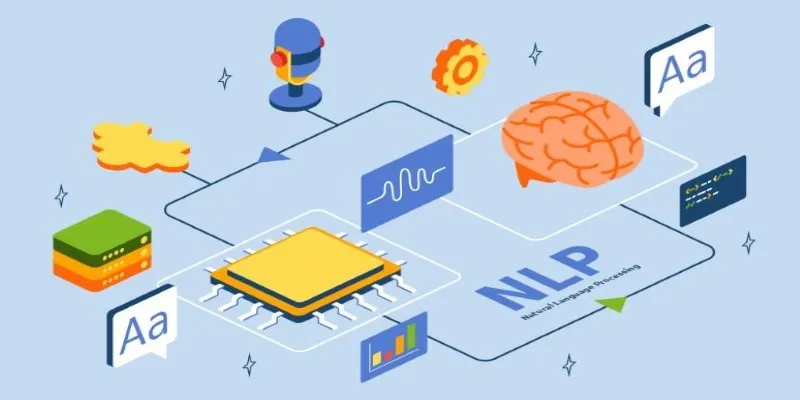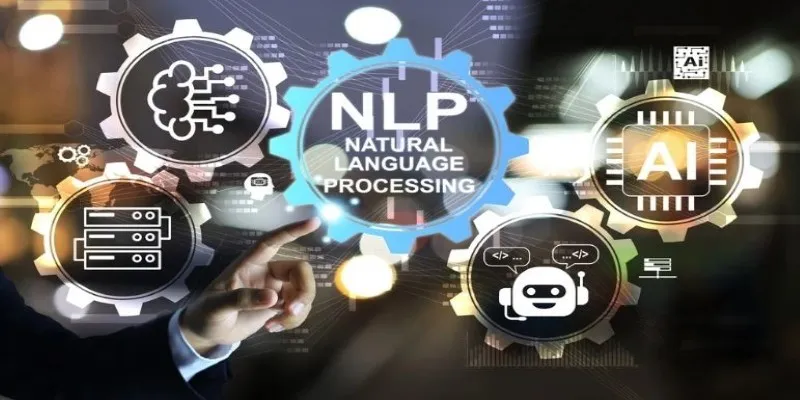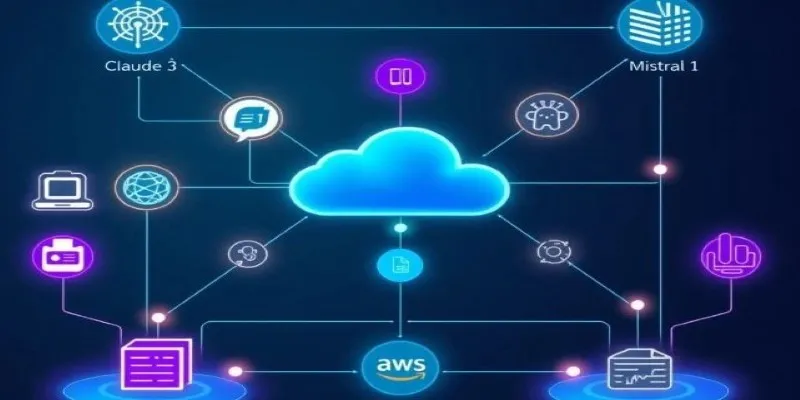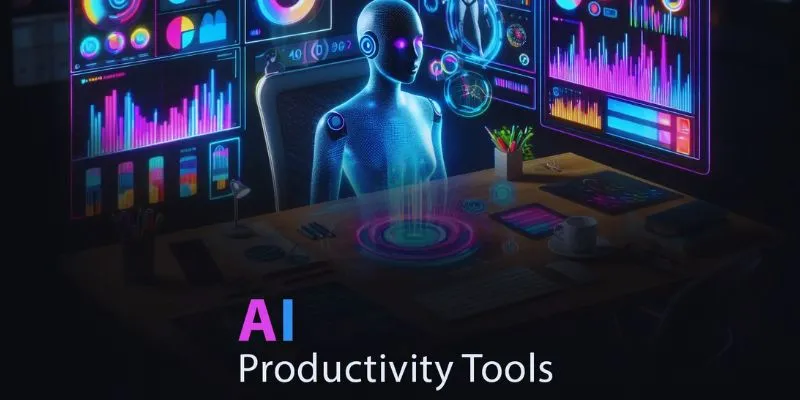Natural Language Processing (NLP) is revolutionizing AI technologies by enabling machines to understand, interpret, and respond to human language. From chatbots and virtual assistants to sentiment analysis and language translation, NLP drives innovation across industries. By bridging the gap between humans and machines, NLP empowers smarter interactions and enhances user experiences, marking a crucial milestone in technological advancement.
Overview of NLP in AI

Natural Language Processing (NLP) functions as a main principle within artificial intelligence by instructing machines to process human communications. System capabilities to process and extract valuable insights from large unstructured text datasets result from the combination of machine learning with computational linguistics in NLP. NLP extends beyond typical programming functions because it helps machines understand context, semantics, and tone. Applications benefit from natural human-like communications through this approach.
Transforming Customer Service Through Automation
Intelligent Virtual Assistants and Chatbots
Intelligent virtual assistants and chatbots have transformed customer service operations through the advancements of Natural Language Processing technology. NLP technology enables these tools to analyze user questions while providing correct immediate responses.
NLP technology allows complex conversations so system operators need less human assistance. Autonomous management of inquiries has become the new standard in many customer support systems. Besides lowering operational expenses, these systems help customers receive faster responses that improve their entire experience.
Multilingual Support
Modern NLP models excel at processing and generating content in multiple languages. This empowers businesses to provide seamless support to customers worldwide, improving accessibility and fostering greater user satisfaction across diverse markets.
Transforming Content Analysis and Summarization with NLP
Smarter Document Processing
Industries like legal, financial, and healthcare manage vast amounts of complex documentation daily. NLP tools revolutionize this process by automating the extraction of key insights, classifying text, and summarizing lengthy documents. This not only accelerates decision-making but also minimizes the risk of human error. For example, legal firms leverage NLP- powered tools to analyze contracts, pinpoint obligations, and extract critical clauses, enhancing productivity while ensuring compliance.
Decoding Sentiment and Intent
NLP also enables systems to interpret the emotional tone and intent behind user input, making it an invaluable tool for marketing and social media monitoring. By analyzing public sentiment, organizations can make informed, data-driven decisions that align with customer preferences and expectations.
Enhancing Search and Information Retrieval with NLP
Semantic Search
Traditional search engines often relied on simple keyword matching, overlooking the nuances of context. With the advent of Natural Language Processing (NLP), semantic search has transformed the way we find information. By understanding user intent and contextual relevance, NLP delivers results that go beyond mere keyword alignment. This technology is now widely adopted across enterprise platforms, internal knowledge bases, and e-commerce systems, significantly improving the accuracy and efficiency of information retrieval.
Question-Answering Systems
NLP has also revolutionized question-answering systems, enabling them to extract precise, context-aware answers from vast datasets. These advanced models have become essential tools for search engines, customer support platforms, and virtual learning environments, where quick and accurate responses are critical to user satisfaction.
Enhancing Accessibility and Inclusion
Text-to-Speech and Speech-to-Text
Natural Language Processing (NLP) technologies are transforming accessibility for individuals with visual or hearing impairments. Applications like text-to- speech and speech-to-text bridge communication gaps by seamlessly converting spoken language into written text and vice versa. Modern AI platforms leverage advanced NLP models to deliver faster, clearer, and more natural interactions, ensuring digital content is more inclusive and usable for everyone.
Language Translation
NLP-powered real-time language translation breaks down language barriers, enabling seamless communication across diverse linguistic backgrounds. This technology is widely adopted in video conferencing, global customer support, and e-learning platforms, fostering collaboration and connection in an increasingly interconnected world.
Unlocking Personalized User Experiences
Recommendation Systems
Natural Language Processing (NLP) revolutionizes personalization by analyzing user reviews, feedback, and queries. By interpreting linguistic patterns in user-generated data, platforms can deliver highly relevant content, tailored product recommendations, and targeted advertising. This advanced level of personalization enhances user engagement and satisfaction across various industries, from e-commerce to entertainment.
Intelligent Email Assistants
Modern email platforms leverage NLP-powered features such as smart replies, grammar corrections, and message prioritization. These tools simplify communication and boost workplace productivity by significantly reducing the time spent managing emails.
Enhancing Recruitment and HR Processes with NLP
Automated Resume Screening and Matching
Natural Language Processing (NLP) is transforming human resources by streamlining the hiring process. Automated resume screening tools powered by NLP can efficiently analyze resumes for skills, experience, and alignment with job descriptions. This ensures a faster, more objective hiring process while reducing manual effort. By leveraging NLP-driven matching algorithms, organizations can shorten time-to-hire and improve the quality of candidates selected, leading to better hiring decisions.
Monitoring Employee Sentiment
NLP also plays a vital role in analyzing internal communications to gauge employee sentiment. By processing feedback from surveys, forms, and communication platforms, organizations can gain valuable insights into workplace morale. This enables companies to foster a positive work environment and identify areas requiring improvement, ultimately supporting a healthier and more productive workforce.
Advancing Healthcare and Medical Research
Clinical Documentation
Natural Language Processing (NLP) is transforming healthcare by streamlining the extraction of critical patient information from unstructured sources like medical notes, lab reports, and discharge summaries. This automation accelerates diagnoses, simplifies record-keeping, and enhances patient care outcomes.
Research Data Analysis
In medical research, NLP tools empower researchers to sift through vast volumes of scientific literature with ease. This enables quicker identification of relevant studies, drug interactions, and valuable clinical trial insights, driving innovation and discovery in the field.
Transforming Education and E-Learning
Intelligent Tutoring Systems
Natural Language Processing (NLP) is revolutionizing e-learning platforms by providing real-time feedback, generating questions, and analyzing comprehension. These intelligent systems adapt educational content to match each student’s understanding and learning pace, fostering a more personalized and effective learning experience.
Automated Grading and Assessment
Educational institutions leverage NLP models to automate the grading of essays and written assessments. These tools evaluate grammar, coherence, and content relevance, enabling educators to dedicate more time to teaching while reducing administrative burdens.
Overcoming Challenges and Exploring Future Opportunities

While NLP offers significant benefits, it also faces key challenges that must be addressed:
- Language Ambiguity: Human language is inherently complex, filled with nuances and context-dependent meanings. To manage this variability effectively, models must be trained on diverse and representative datasets.
- Data Bias: Language models often inherit biases embedded in their training data. Developers must implement robust strategies to identify, address, and minimize these biases to ensure fair and ethical outcomes.
- Privacy Concerns: NLP systems frequently handle sensitive information, making strong data protection measures and compliance with privacy regulations essential to safeguarding user trust.
Conclusion
Natural Language Processing (NLP) stands as a cornerstone of modern AI, driving innovation and delivering transformative benefits across industries. By enhancing customer support, streamlining workflows, enabling more inclusive user experiences, and advancing healthcare solutions, NLP is revolutionizing how machines understand and interact with human language. As this technology continues to evolve, it offers businesses and developers a powerful tool—not just for improving operational efficiency, but for fostering deeper, more seamless collaboration between humans and machines.
 zfn9
zfn9

